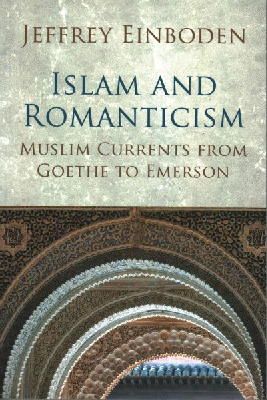
Islam and Romanticism: Muslim Currents from Goethe to Emerson
Jeffrey Einboden
Revealing Islam’s formative influence on literary Romanticism, this book recounts a lively narrative of religious and aesthetic exchange, mapping the impact of Muslim sources on the West’s most seminal authors. Spanning continents and centuries, the book surveys Islamic receptions that bridge Romantic periods and personalities, unfolding from Europe, to Britain, to America, embracing iconic figures from Goethe, to Byron, to Emerson, as well as authors less widely recognized, such as Joseph Hammer-Purgstall.
Broad in historical scope, Islam and Romanticism is also particular in personal detail, exposing Islam’s role as a creative catalyst, but also as a spiritual resource, with the Qur’an and Sufi poetry infusing the literary publications, but also the private lives, of Romantic writers. Highlighting cultural encounter, rather than political exploitation, the book differs from previous treatments by accenting Western receptions that transcend mere “Orientalism”, finding the genesis of a global literary culture first emerging in the Romantics’ early appeal to Islamic traditions.
Product Details
About Jeffrey Einboden
Reviews for Islam and Romanticism: Muslim Currents from Goethe to Emerson
David Jasper – Professor of Literature and Theology, University of Glasgow 'Islam and Romanticism uniquely maps and analyses diverse debts of Western culture and civilization to Islamic precedents. Focusing on select developments of authorship in the 18th and 19th century, from Goethe to Emerson, it provides fascinating new insight into the catalyzing effects which certain Muslim sources appear to have had on Western literary and cultural creativity. This book is of interest – and a delight to read – for anyone curious about literary history and the conversations between cultures and religions.'
Professor Sebastian Günther, University of Göttingen 'In elegant prose, Einboden shows us how Muslim sources inspired and catalyzed Western creativity. The story of the imaginative effect of Muslim influences on such figures as Herder, Coleridge, Mary Shelley, Emerson, and of course Goethe, will forever change the way we read the Romantic literary canon and its affect.'
Shawkat Toorawa, Cornell University
